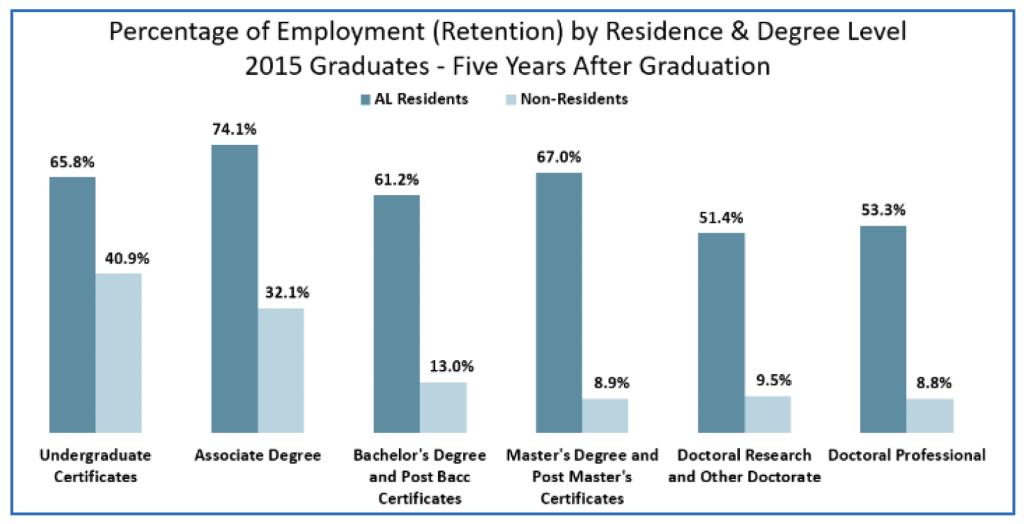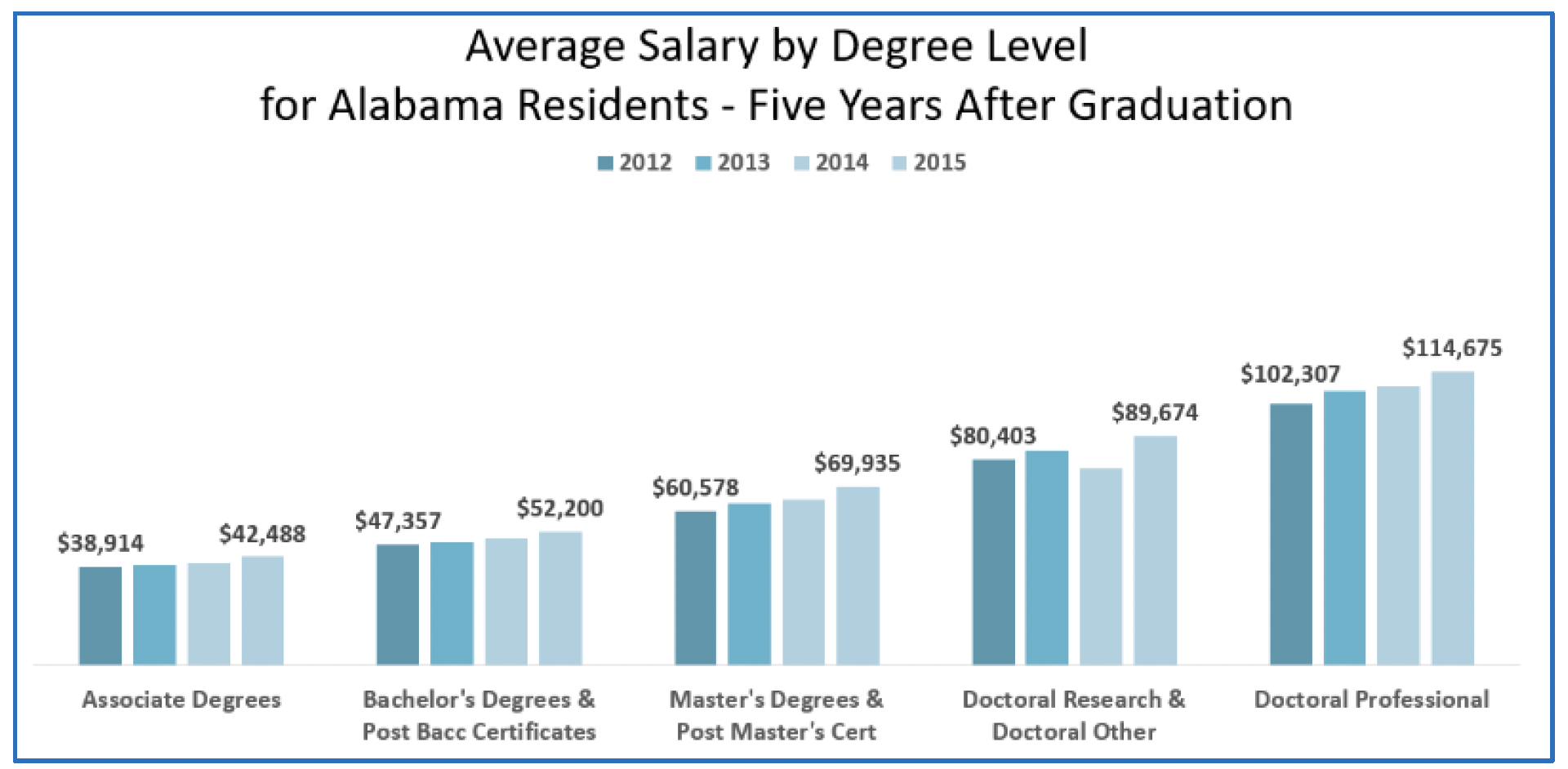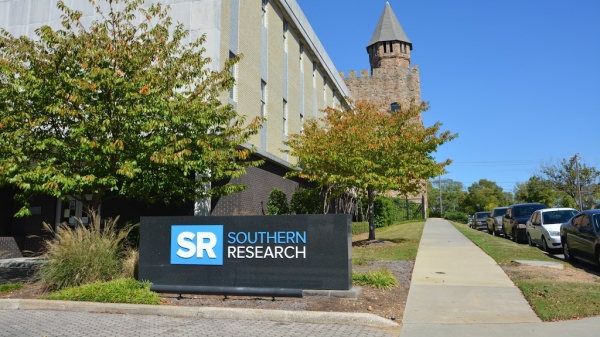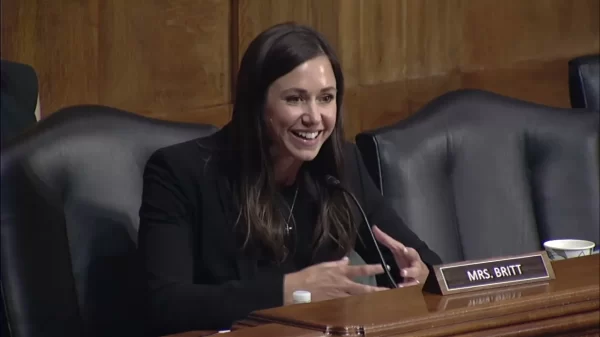Over the past decade, Alabama’s public colleges and universities have shown continued growth in graduates across all degree levels. Between 2012 and 2021, the number of degrees and certificates awarded by the state’s public institutions increased by 27.8 percent, with bachelor’s degrees growing from 20,500 to nearly 28,000. Over a similar period, median earnings for Alabamians 25-64 rose six percent from just over $37,700 to $40,000 with bachelor’s degree holders earning upwards of $52,000 annually five years after graduation. This data was reported in the 2022 Employment Outcomes Report presented at the quarterly meeting of the Alabama Commission on Higher Education.
The report addressed two questions:
- How does the level of education impact salary? The relationship between educational attainment and personal income remains a consistent trend across the state.
- What percentage of Alabama residents and non-Alabama residents who graduate from public two-year and four-year institutions remain in Alabama? The findings indicate Alabama residents are three times more likely to remain in the state following graduation.

Alabama Commission on Higher Education
Jim Hood, ACHE Deputy Director of Financial and Information Systems, said the findings of the report support national data that link salary to educational attainment. Employment data for graduates of Alabama public two- and four-year institutions confirm that, on average, more advance degrees typically produce higher earnings.
The Commission is hoping to keep more of those graduates working in the state while helping adults who have some college credits return to complete a degree or credential through the All in Alabama campaign All in Alabama – Career Opportunities and Career Growth.

Alabama Commission on Higher Education
“We are optimistic that lawmakers will fund (Re)Engage Alabama to address the increased needs of business and industry for credentialed workers,” said ACHE Executive Director Jim Purcell. “It is cost beneficial to help these individuals complete a credential, especially one that is in high demand in the state’s economy.”
Of working Alabama adults, 21.6 percent have some college without a degree.
ACHE is also looking to lawmakers to help with the Economic Industry Alignment Program which is designed to continue to align the work at the state’s colleges and universities to the needs of business and industry.
Commissioners approved new academic programs for the following:
- Alabama A&M University – Doctor of Philosophy in Social Work
- Auburn University at Montgomery – Doctor of Education in Instructional Systems and Learning Sciences
- Jacksonville State University – Bachelor of Public Health in Public Health and Master of Public Health in Public Health
- University of Alabama at Birmingham – Bachelor of Science in Disability Studies and Rehabilitation Science and Education Specialist in School Psychology
- University of Alabama in Huntsville – Bachelor of Science in Business Administration in Analytics
- University of South Alabama – Bachelor of Science in Organizational Leadership, Master of Science in Cyber Security, Master of Science in Computer and Information Sciences, and Doctor of Philosophy in Exercise Science and Performance Nutrition
- Ingram State Technical College – Certificate in Industrial Maintenance Technology
Request to Amend Post-Implementation Conditions:
- Lawson State Community College, Associate of Applied Science in Diagnostic Medical Sonography – Extension Requested
- University of Alabama, Master of Arts in Religion in Culture – Modification Requested
- University of Alabama, Doctor of Philosophy in Geography – Extension Requested





















































